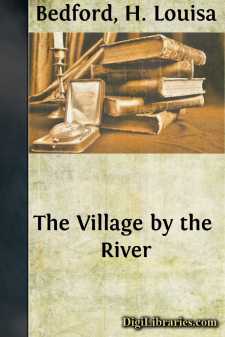Categories
- Antiques & Collectibles 13
- Architecture 36
- Art 48
- Bibles 22
- Biography & Autobiography 813
- Body, Mind & Spirit 142
- Business & Economics 28
- Children's Books 17
- Children's Fiction 14
- Computers 4
- Cooking 94
- Crafts & Hobbies 4
- Drama 346
- Education 46
- Family & Relationships 57
- Fiction 11829
- Games 19
- Gardening 17
- Health & Fitness 34
- History 1377
- House & Home 1
- Humor 147
- Juvenile Fiction 1873
- Juvenile Nonfiction 202
- Language Arts & Disciplines 88
- Law 16
- Literary Collections 686
- Literary Criticism 179
- Mathematics 13
- Medical 41
- Music 40
- Nature 179
- Non-Classifiable 1768
- Performing Arts 7
- Periodicals 1453
- Philosophy 64
- Photography 2
- Poetry 896
- Political Science 203
- Psychology 42
- Reference 154
- Religion 513
- Science 126
- Self-Help 84
- Social Science 81
- Sports & Recreation 34
- Study Aids 3
- Technology & Engineering 59
- Transportation 23
- Travel 463
- True Crime 29
The Village by the River
Categories:
Description:
Excerpt
CHAPTER I.
"Well, it were the grandest funeral as ever I set eyes on," said Allison, the blacksmith, folding his brawny arms under his leather apron, and leaning his shoulders against the open door of the smithy in an attitude of leisurely ease.
The group, gathered round him on their way home from work, gave an assenting nod and waited for more.
For convenience Allison shifted his pipe more to the corner of his mouth, and proceeded—
"Not one of yer new-fangled ones, with a glass hearse for all the world like a big window-box, and a sight of white flowers like a wedding. Everything was as black as it should be; I never see'd finer horses, in my life, with manes and tails reachin' a'most to the ground, and a shinin' black hearse with a score of plumes on the top, and half a dozen men with silk hatbands walking alongside it, right away from the station to the churchyard yonder." And Allison threw a backward glance over the billowy golden cornfields, which separated the village from the church by a quarter of a mile, where the grand tower reared its head as if keeping watch over the village like a lofty sentinel.
"There were lots of follerers, I expect?" suggested Macdonald, gently. He was a Scotchman, and worked on the line, and he shifted his bag of tools from his shoulder to the ground as he spoke. "A gentleman like him would leave a-many to miss him."
Allison stared across at the river which ran swiftly by on the opposite side of the road. The long village of Rudham skirted its banks irregularly for a mile or more. The blacksmith had plenty of news to communicate, but he was not to be hurried in the relating of it.
"I'm tryin' to recolleck," he said, knitting his brows, "but I can't mind more than two principal mourners. And the undertaker, when he stopped to water his horses at the inn, told Mrs. Lake as they was the doctor and the lawyer; but, relations or no, they did it wonderful well! Stood with their hats off all in the burnin' sun, and went back to look at the grave when the funeral was over."
"The household servants was there—leastways the butler and footman," said Tom Burney, a dark-eyed, gipsy-looking young man, who was one of the under-gardeners at the big house on the hill, "but not him as is coming after."
"The question is who is a-comin' after?" said Allison, in a tone of sarcastic argument. "Maybe you'll tell us, as you seem to know such a lot about it?"
Burney coloured under his dark skin, and gave an uneasy little laugh.
"I know what I've heard, no more nor less," he said; "but it comes first-hand from the butler of him who's gone."
Allison gave an incredulous sniff; he was not used to playing second fiddle, and the heads of his listeners had turned to a man in the direction of the last speaker.
"He hadn't no near relation, not bein' a married man," went on Burney, enjoying his advantage; "and Mr. Smith—that's the butler—came and walked round the garden until it was time for his train to go back to London."
"He don't pretend as the property's left to him, I suppose?" broke in Allison, jocosely....


